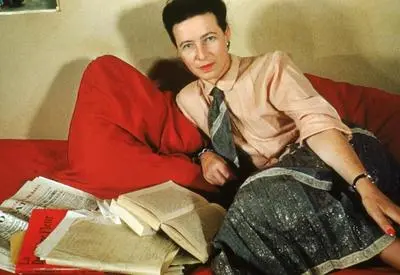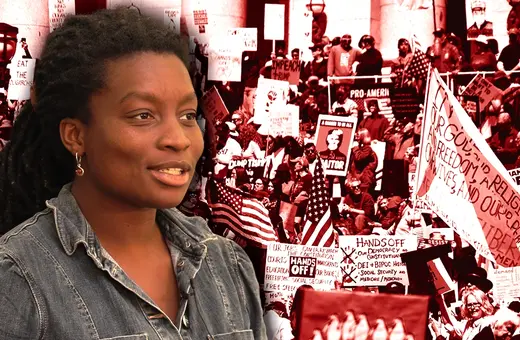Barbie, the global sensation, has been lauded for its existential themes and treatment of patriarchy, identity, and feminism. But Stephanie Garcia challenges the applause. Looking at the film through the lens of Simone De Beauvoir she argues that the film falls short of an existential masterpiece.
"Do you guys ever think about dying?" A single line that seemed to beckon a wave of accolades touting "Barbie" as an existentialist movie for our age. Yet, behind the trailer lies a film that teeters on the edge of pseudo-philosophical exploration, with its existential and feminist themes. “Barbie” appears no more than a thinly veiled veneer atop a commodity-driven toy-selling narrative. And on reflection can it live up to the existentialist feminist thought of Simone de Beauvoir, an existentialist thinker whose seminal work “The Second Sex” offers a healthy riposte to a surface-level exploration of feminism?
Simone de Beauvoir's analysis of women's struggle is a cornerstone of her feminist philosophy, particularly articulated in her seminal work "The Second Sex." She examines how women have historically been marginalized, objectified, and relegated to secondary roles in society. De Beauvoir asserts that women's social status as the "Other" has been perpetuated by a male-dominated culture that defines them primarily in relation to men.
In the midst of reviews from GQ to The Guardian, which pay homage to supposed nods to existentialist classics like "The Matrix" and "The Truman Show," the film "Barbie" manages to raise intriguing questions. However, amidst the backdrop of existentialist musings and nods to feminism, it is necessary to undertake a rigorous critique of the film's thematic analysis and its attempts to address the foundational tenets of existentialism and Simone de Beauvoir's feminist theory. Are we truly witnessing a profound intersection, or are we merely toying with shallow associations? Is Barbie "Simone-enough”?
 SUGGESTED READING
Simone de Beauvoir and the Ethics of Seduction
By Sarah LaChance Adams
SUGGESTED READING
Simone de Beauvoir and the Ethics of Seduction
By Sarah LaChance Adams
The film endeavours to traverse the realms of existential dread and the quest for self-identity, a terrain well-trodden by existentialist thinkers. Yet, the existentialism of De Beauvoir thrives on the pursuit of authenticity and personal responsibility, a dimension the film struggles to effectively capture. Simone de Beauvoir, an existentialist feminist giant, advocated for the navigation of ambiguity and self-definition. Alas, the characters within the film seem to dabble in existential unease without truly confronting the depths of individuality. The purported existential crisis of Barbie pales in significance when compared to the overarching existential anguish experienced by Gloria, the real hero of the film, painting a distorted picture of existential introspection.
The film's connection between Barbie's existential inquiry and Gloria's tumultuous journey raises questions about the film's earnestness in grappling with the philosophical narrative it endeavours to portray. The metamorphosis from a stereotypical Barbie grappling with her existence to a realization of her desire for emotions echoes the superficial portrayal of existential angst rather than its profound exploration.
___
The film's endeavours to mirror the trajectory of Barbie's awakening with women's emancipation rings hollow
___
"Barbie" falls prey to the trap of reductive literalism, particularly when juxtaposed with Simone de Beauvoir's nuanced analysis of women's struggles. De Beauvoir's magnum opus "The Second Sex" dissected the systematic marginalization, objectification, and subordination of women across history. Her exploration of the 'Othering' of women within a male-dominated culture dismantled notions of innate inferiority, emphasizing that womanhood is constructed through societal and cultural lenses.





















Join the conversation